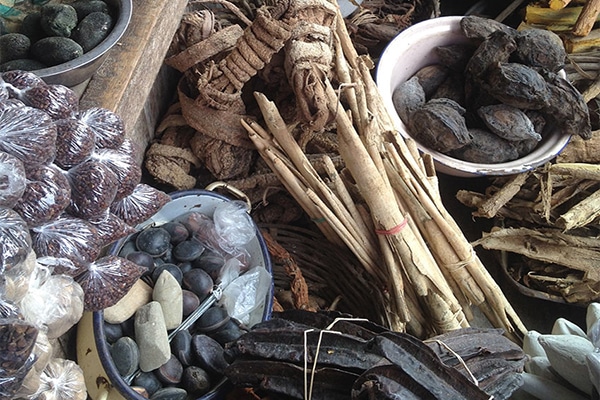Malagasy tradition is at the heart of daily life in Madagascar, an island rich in traditions and ancestral beliefs. This fascinating island is home to traditional medicine and pharmacopoeia deeply rooted in its history. Many therapists across the country use this ancestral knowledge to treat various illnesses and conditions.*
Recently, the World Health Organization (WHO) has taken particular interest in this unique medical heritage. This attention has led to initiatives aimed at promoting and protecting these traditional practices. WHO has undertaken a census of “traditional practitioners” of Madagascar, and drafted laws to regulate their exercise. This formalization paved the way for the integration of these neo-practitioners into the existing healthcare system, mainly in urban areas.
An anthropological and ethnopharmacological look at these traditional practitioners reveals rich and varied practices. Traditional practitioners in Madagascar play a crucial role in offering medical alternatives that are often inaccessible by conventional means. Their knowledge of medicinal plants and traditional healing techniques is a precious heritage passed down from generation to generation.
This official recognition by the WHO and the integration of traditional practitioners into the healthcare system have given rise to numerous reflections on the evolution of traditional Malagasy medicine. While some see this development as a necessary modernization, others fear the loss of authenticity and ancestral knowledge. Nonetheless, efforts to document and regulate these practices ensure that medical traditions are preserved while being adapted to modern standards.
The Malagasy tradition and its pharmacopoeia continue to evolve, oscillating between preservation of ancestral practices and adaptation to modern requirements. This dynamic demonstrates the resilience and the cultural wealth of Madagascar. As the world increasingly discovers and values these practices, it is crucial to maintain a balance between respect for traditions and medical innovations to ensure that this invaluable heritage continues for future generations. Ultimately, valuing Malagasy tradition contributes not only to the cultural wealth of the country, but also to the improvement of health care for its inhabitants.






Comment (0)